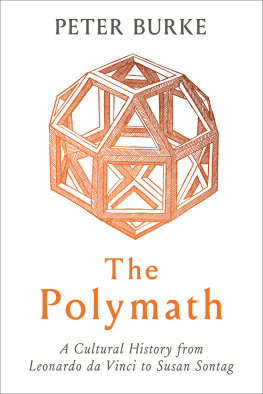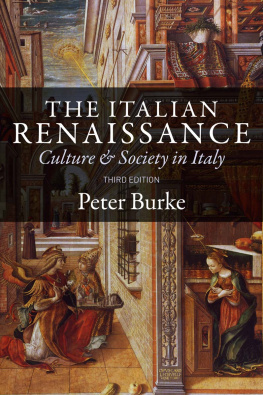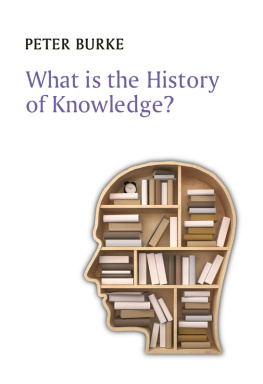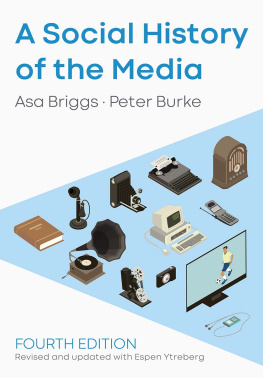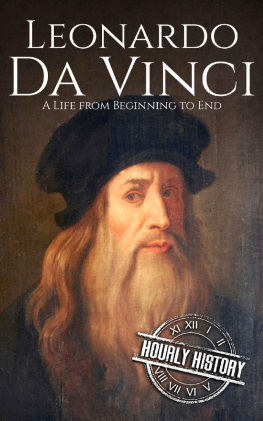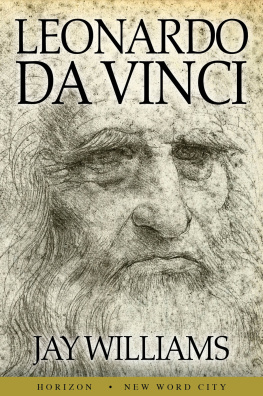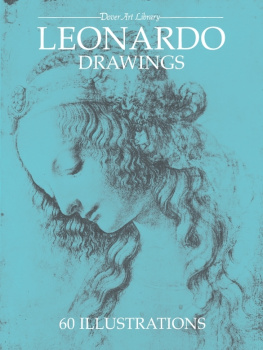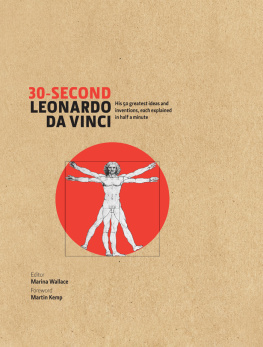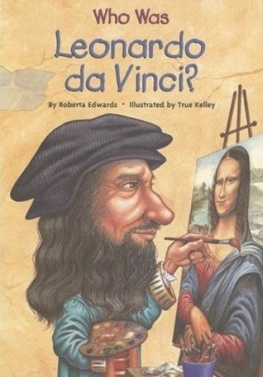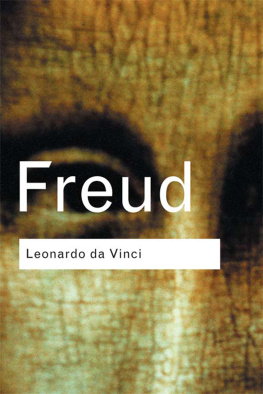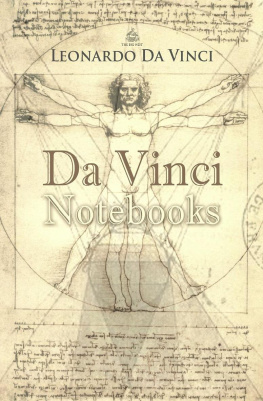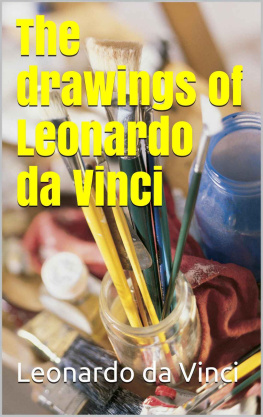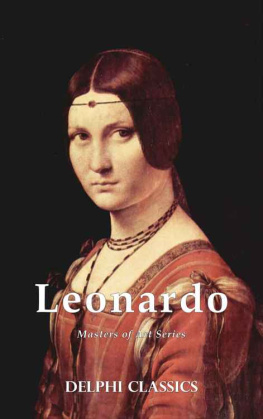Peter Burke - The Polymath: A Cultural History From Leonardo Da Vinci to Susan Sontag
Here you can read online Peter Burke - The Polymath: A Cultural History From Leonardo Da Vinci to Susan Sontag full text of the book (entire story) in english for free. Download pdf and epub, get meaning, cover and reviews about this ebook. year: 2020, publisher: Yale University Press, genre: Detective and thriller. Description of the work, (preface) as well as reviews are available. Best literature library LitArk.com created for fans of good reading and offers a wide selection of genres:
Romance novel
Science fiction
Adventure
Detective
Science
History
Home and family
Prose
Art
Politics
Computer
Non-fiction
Religion
Business
Children
Humor
Choose a favorite category and find really read worthwhile books. Enjoy immersion in the world of imagination, feel the emotions of the characters or learn something new for yourself, make an fascinating discovery.
- Book:The Polymath: A Cultural History From Leonardo Da Vinci to Susan Sontag
- Author:
- Publisher:Yale University Press
- Genre:
- Year:2020
- Rating:5 / 5
- Favourites:Add to favourites
- Your mark:
- 100
- 1
- 2
- 3
- 4
- 5
The Polymath: A Cultural History From Leonardo Da Vinci to Susan Sontag: summary, description and annotation
We offer to read an annotation, description, summary or preface (depends on what the author of the book "The Polymath: A Cultural History From Leonardo Da Vinci to Susan Sontag" wrote himself). If you haven't found the necessary information about the book — write in the comments, we will try to find it.
The Polymath: A Cultural History From Leonardo Da Vinci to Susan Sontag — read online for free the complete book (whole text) full work
Below is the text of the book, divided by pages. System saving the place of the last page read, allows you to conveniently read the book "The Polymath: A Cultural History From Leonardo Da Vinci to Susan Sontag" online for free, without having to search again every time where you left off. Put a bookmark, and you can go to the page where you finished reading at any time.
Font size:
Interval:
Bookmark:

THE POLYMATH
i
ii
THE POLYMATH
A CULTURAL HISTORY FROM
LEONARDO DA VINCI TO
SUSAN SONTAG
PETER BURKE
YALE UNIVERSITY PRESS
NEW HAVEN AND LONDON
iii
Copyright 2020 Peter Burke
All rights reserved. Th
is book may not be reproduced in whole or in part, in any form (beyond that copying permitted by Sections 107 and 108 of the U.S. Copyright Law and except by reviewers for the public press) without written permission from the publishers.
For information about this and other Yale University Press publications, please contact: U.S. Offi
ce: sales.press@yale.edu yalebooks.com
Europe Offi
ce: sales@yaleup.co.uk yalebooks.co.uk
Set in Adobe Garamond Pro by IDSUK (DataConnection) Ltd
Printed in Great Britain by Gomer Press Ltd, Llandysul, Ceredigion, Wales Library of Congress Control Number: 2019952805
ISBN 978-0-300-25002-2
A catalogue record for this book is available from the British Library.
10 9 8 7 6 5 4 3 2 1
iv
Nothing is more beautiful than to know everything (Plato)
Ah, but a mans reach should exceed his grasp,
Or whats a heaven for?
(Robert Browning, Andrea del Sarto)
Specialization is for insects
(Robert Heinlein)
In memory of Asa Briggs, David Daiches, Martin Wight and the Sussex project to redraw the map of learning
And for Maria Lcia, who is able to do three things at the same time v
vi
CONTENTS
vii
viii
PLATES
ix
For the last twenty years or so I have been working, on and off , on the history of knowledge, publishing a general survey, A Social History ofKnowledge (2 vols., 20002012), an introduction to the subject, What isthe History of Knowledge? (2016), and most recently Exiles and Expatriatesin the History of Knowledge (2017). Like the book on exiles, the present study developed out of the general survey to become a book on its own.
I have been drawn to this topic for a long time. Although my mathematical and scientifi c illiteracy makes polymathy out of the question, I have long shared the view famously expressed by the French historians Lucien Febvre and Fernand Braudel that one writes better history by escaping from the confi nes of that discipline, at least from time to time.
As a student at Oxford, taking a three-year course in history, I went to lectures in other disciplines to Gilbert Ryle on philosophy, for instance, to Roy Harrod on economics, to J. R. R. Tolkien on medieval literature, to Michael Argyle on psychology and most important for my future to Edgar Wind on art history. As a postgraduate student, I began reading in sociology and anthropology, and attended seminars in the history of science as well as one organized by Norman Birnbaum and Iris Murdoch on the concept of alienation.
When I heard that the new University of Sussex was going to be organized in an interdisciplinary manner, I immediately applied for a position there and taught in the School of European Studies from 1962 to 1979, collaborating in teaching with colleagues in art history, x
PREFACE AND ACKNOWLEDGEMENTS
sociology, and English and French literature. Th
anks to these experi
ences, at Sussex in particular, I felt that this was a book that I really had to write, about individuals and small groups concerned with the big picture as well as with detail and often engaged in the transfer or translation of ideas and practices from one discipline to another.
It has been a pleasure to keep company, however indirectly, with this gifted group of men and women, the polymaths discussed in this book, some of whom were old acquaintances, and in a few instances personal friends, while the achievements of others were discovered only in the course of the research.
I should like to thank Tarif Khalidi and Geoff rey Lloyd for their comments on chapter 1; Waqas Ahmed for sending me a questionnaire on polymaths in 2013 as well as an early draft of his book; Christoph Lundgreen, Fabian Krmer and the Zwei Kulturen Research Group at the Berlin Brandenburgische Akademie der Wissenschaften for a fruitful discussion of my ideas; and Ann Blair, Steven Boldy, Arndt Brendecke, Chris Clark, Ruth Finnegan, Mirus Fitzner, Jos Maria Garca Gonzlez, Michael Hunter, Gabriel Josipovici, Neil Kenny, Christel Lane, David Lane, Hansong Li, Robin Milner-Gulland, William OReilly, Ulinka Rublack, Nigel Spivey, Marek Tamm and Marianne Th
ormhlen for
information, suggestions and references.
Some of my thoughts about polymaths have been presented in print as well as in lecturersion is an improvement on its more sketchy predecessors. Presenting the same ideas in diff erent places or contexts has often suggested modifi cations. Hence I am extremely grateful to the audiences of my lectures on this topic in Belo Horizonte, Berlin, Brighton, Cambridge, Copenhagen, Engelsberg, Frankfurt and Gotha for their various questions and comments. My warm thanks also go to Robert Baldock and Heather McCallum at Yale University Press for welcoming the manuscript, and to their two anonymous readers and my copy-editor Richard Mason for their constructive suggestions. As usual, Maria Lcia read the whole manuscript and off ered wise advice.
xi
xii
History, it has been said, is unkind to polymaths. Some are forgotten, while many are squashed into a category we can recognize
ey are
remembered, as we shall see again and again in what follows, for only one form or a few forms of their varied achievements. It is time to redress the balance. In fact, an increasing number of studies of individual polymaths have been published in recent years, perhaps in reaction against our culture of specialization. I have made grateful use of many of these monographs, which include not only studies of intellectual giants such as Leonardo and Leibniz but also some near-forgotten fi gures such as Dumont Durville and William Reneral surveys are more diffi cult
to fi nd, although their number is increasing, especially in the form of short contributions to journals or radio pr
In attempting such a survey, this book off ers an approach to the cultural and social history of knowledge. All forms of knowledge, practical as well as theoretical, deserve to have their histories written.
Hunter-gatherers needed a wide range of knowledges to survive, while farmers were celebrated as many-sided by the geographer Friedrich Ratzel, who was a polymath himselftisans, midwives, merchants, rulers, musicians, footballers and many other groups require and possess a segment of knowledge in which some individuals excel. In the last few years, the term polymath, once confi ned to scholars, has been extended to individuals whose achievements range from athletics to politics.
THE POLYMATH
DEFINITIONS
Th
e polymath discussion group, for instance, has defi ned the polymath as
someone who is interested in and learning about many subjects Th is
book, on the other hand, will concentrate on academic knowledge, formerly known as learning. It focuses on scholars with interests that were encyclopaedic in the original sense of running around the whole intellectual
course or curriculum, or at any rate around a major segment of that circle.
For this reason I have excluded two entrepreneurs: Elon Musk, who took degrees in economics and physics before founding Tesla and other companies, and Sergei Brin, who studied mathematics and computer science before founding Google together with another computer scientist, Larry Page. I also hesitated before including that many-sided man John Maynard Keynes, since most of his sides were not academic. Keynes was described by his friend Leonard Woolf as a don, a civil servant, a specu-lator, a businessman, a journalist, a writer, a farmer, a picture-dealer, a statesman, a theatrical manager, a book collector, and half a dozen other things. On the other hand, Keynes himself remarked that the master economist must possess a rare combination of gifts. He must reach a high standard in several diff erent directions and must combine talents not often found together. He must be mathematician, historian, statesman, philosopher in some degree. On that criterion, not to mention his interest in the many interests of Isaac Newton, Keynes certainly qualifi
Next pageFont size:
Interval:
Bookmark:
Similar books «The Polymath: A Cultural History From Leonardo Da Vinci to Susan Sontag»
Look at similar books to The Polymath: A Cultural History From Leonardo Da Vinci to Susan Sontag. We have selected literature similar in name and meaning in the hope of providing readers with more options to find new, interesting, not yet read works.
Discussion, reviews of the book The Polymath: A Cultural History From Leonardo Da Vinci to Susan Sontag and just readers' own opinions. Leave your comments, write what you think about the work, its meaning or the main characters. Specify what exactly you liked and what you didn't like, and why you think so.

